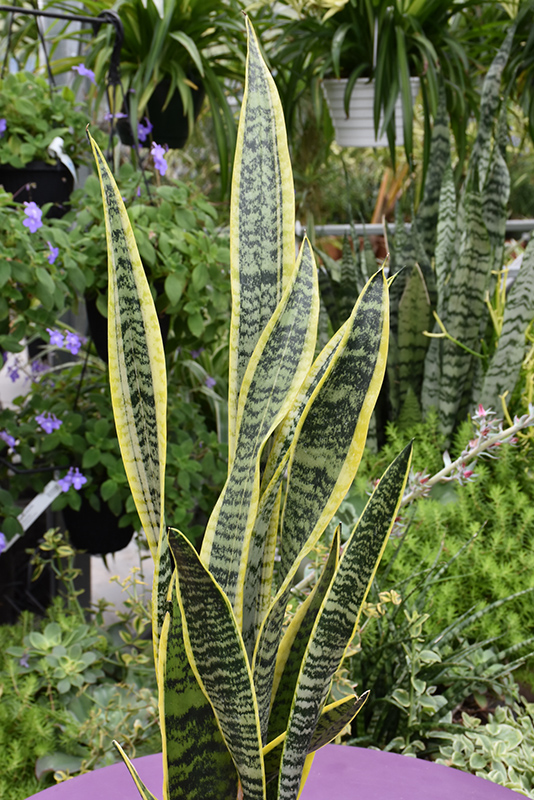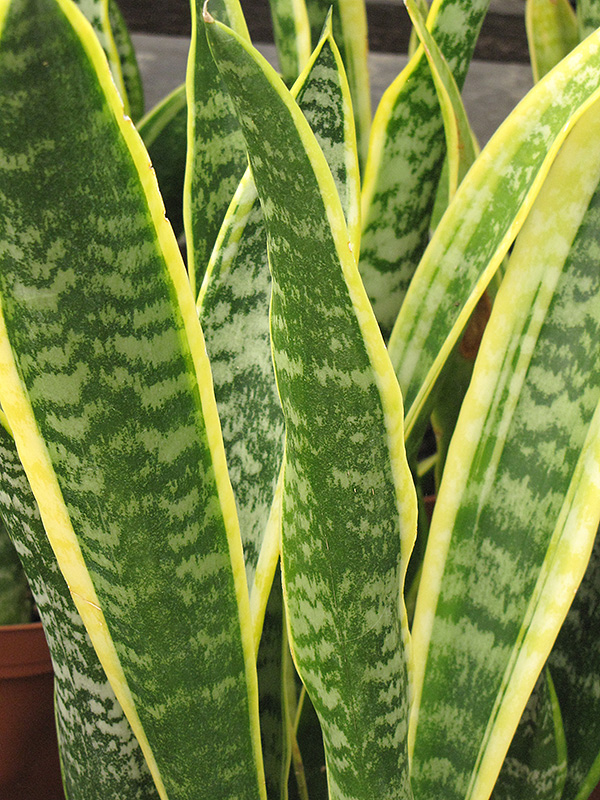Get ready to ignite your excitement and cultivate unforgettable memories
with Wallace's Garden Center Events! We're thrilled to invite you to a world of
enchanting experiences, where every gathering is a celebration of nature, community, and pure fun.
Plant Finder
Striped Snake Plant
Sansevieria trifasciata 'Laurentii'
Height: 4 feet
Spread: 18 inches
Sunlight:
![]()
![]()
Other Names: Mother-In-Law's Tongue, Viper's Bowstring Hemp
Description:
This popular plant will form dense stands of vertical leaves, arranged in rosettes; produces green leaves with horizontal gray-green bands and vertical yellow margins; a beautiful indoor accent plant
Features & Attributes
Striped Snake Plant features dainty fragrant light green spider-like flowers with white overtones along the stems in mid spring. Its attractive large twisted narrow leaves remain forest green in color with distinctive yellow edges and tinges of grayish green throughout the year.
This is an herbaceous evergreen houseplant with an upright spreading habit of growth. This plant may benefit from an occasional pruning to look its best.
Planting & Growing
When grown indoors, Striped Snake Plant can be expected to grow to be about 4 feet tall at maturity, with a spread of 18 inches. It grows at a slow rate, and under ideal conditions can be expected to live for approximately 10 years. This houseplant performs well in both bright or indirect sunlight and strong artificial light, and can therefore be situated in almost any well-lit room or location. It is very adaptable to both dry and moist soil, but will not tolerate any standing water. The surface of the soil shouldn't be allowed to dry out completely, and so you should expect to water this plant once and possibly even twice each week. Be aware that your particular watering schedule may vary depending on its location in the room, the pot size, plant size and other conditions; if in doubt, ask one of our experts in the store for advice. It is not particular as to soil pH, but grows best in sandy soil. Contact the store for specific recommendations on pre-mixed potting soil for this plant.
There are many factors that will affect the ultimate height, spread and overall performance of a plant when grown indoors; among them, the size of the pot it's growing in, the amount of light it receives, watering frequency, the pruning regimen and repotting schedule. Use the information described here as a guideline only; individual performance can and will vary. Please contact the store to speak with one of our experts if you are interested in further details concerning recommendations on pot size, watering, pruning, repotting, etc.
-- THIS IS A HOUSEPLANT AND IS NOT MEANT TO SURVIVE THE WINTER OUTDOORS IN OUR CLIMATE --



